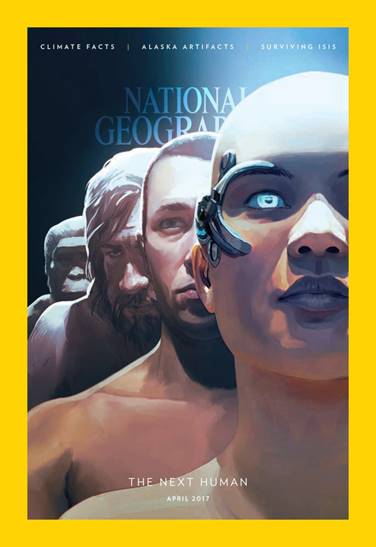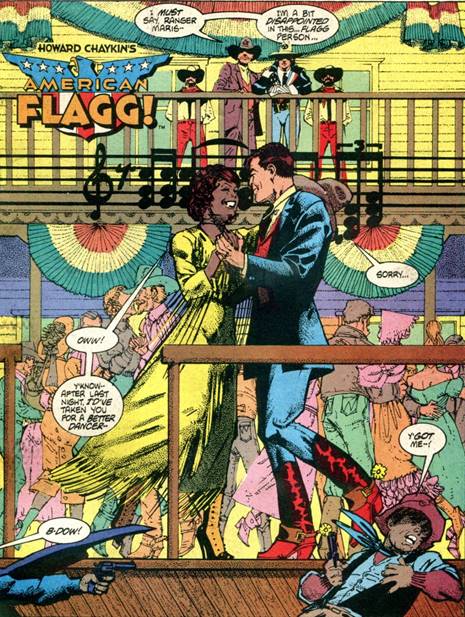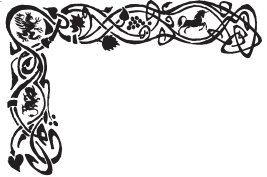The type of milieu the 30s Junto found inspiring to write fantasies round invited the romance of the introspective adventurer. Actually, you don’t have to go back in time 50,000 years or even 100 to find inspiring milieu. Manhattan used to have fire escapes on dark-red brick buildings lined with soda fountains, pawnshops, butchers, laundry (see CH 5). The 40s, 50s or 60s when the city was more O’Henry.
The city was living and irrational but with its own internal logic. On hot nights people slept on fire escapes. Desires are easy to assuage. These old neighbourhoods have a type of logic associated with them; order is associated with desire (Apollo and Dionysus). When the likes of Robert Moses move in, the false Apollo follows in their wake and there are no more kids larking on steam-vents, no more Spirit, no more picaresque adventure (it’s in the comics, I guess).
The false Apollo destroys the logic of desire for that of fact; real estate. What you’re eventually left with is nonsense, because a psychological neighbourhood becomes an inert or factual neighbourhood. Linear thinking has taken over from the unthinking daily round. Action with meaning has a psychological content to it; not necessarily thought out, urge or desire.
Revivalism means bringing back the psychological content – Dionysus. Instead of a nonsense world of rational facts, you get the logic of desire and romance! Everything is basically opposite to the future as “they” perceive it and more attuned to fantasy. The types of milieu the Junto found inspiring. Here’s a quote by REH..
'Concerning art: I am by no means convinced that art is any higher than certain other forms of human activity, even according to the evolutionary standard. Such men as Michel Angelo, Poe, Beethoven, Cellini, Shaw are no more highly evolved than such men as Saladin, Napoleon, Genghis Khan, Robert E. Lee, Sam Houston, Thomas Jefferson, or James Corbett for that matter. The whole trouble with the viewpoint of purely mental workers is that they invariably underrate the mentality of other types of persons, and the intelligence required by other types of activities.'
The Junto may have been the rebels of the 30s and Howard, by downplaying the Apollonian vision of great artists like Michelangelo, may have been subconsciously upgrading Dionysus.
Nevertheless artists, however great, work within an “unthinking” milieu (unless they’re le Corbusier). As far as Howard goes, perhaps he was instinctively against the “rational” Graeco-Roman world; but the irrational, Dionysian side of that world can hardly be overstated. There is something to be said for the balance achieved, but Howard was ever the extremist.
If one is to reestablish the Wild West one has to have balance in mind as an alternate society has to invade territory, so the biggest threat to its establishment is anarchy. Its aim is to rejuvenate the west and to reestablish milieux along the lines of Hawthorne – Puritan or homely. The success of the venture requires Indians to move back into their old hunting grounds and cooperating with the new settlers. So, two things have to be done. If you assume the rebellion is successful at gaining and holding territory – Yellowstone and the National Parks – it immediately becomes prey to raiding bands of marauders attracted by the anarchic situation. Actually, this resembles quite closely the mid-70s cult TV series Survivors (of which more anon.)
Alongside the invasion, then, goes the disestablishment of reservations and the reestablishment of the hunting grounds in National Parks. Now, a key part is that law-and-order in the newfound territories is action-based in the true sense of the old west. Namely, movement on horseback and foot by scouts familiar with the terrain, directing Plexus Rangers © stationed at underground stabling posts (Wild Horses, Alternate 2).
Since the aim is to reestablish the old west, there has to be seeming anarchy, but it’s not truly anarchic. As in the old days, planning is required and probably more to the point on-the-hoof tactics and war-councils along the lines of the plains Indians. There has to be a deliberate balance between order and disorder because the newcomers are escaping the deadly order of an inert authority. Instead, desire and urge are released in the new communities, which develop an internal order (through craft and homesteading etc.)
The release of desires in the wilderness may seem like anarchy, and it could be, so it needs a type of control that is suited to it. It doesn’t need government as the settlements are self-governed; it requires fast moving and well-armed wilderness types. Any marauders who see fit to mosey around on super-revved up 4-wheel drives packing side-arms will swiftly realize their error (if they’re lucky!)
The aim is to enforce peace without compromising wilderness freedom. It’s quite useful to compare the situation with the truly anarchic one found in BBC TV series Survivors (1975-77). As fans will recall, the original commune of Greg, Jenny, Abby, kids, horse-and-cart and so on hung out in a fantastic Tudor-esque castle with an equally fantastic sense of community. Wary of cultivating contacts in a dog-eat-dog scenario, even friendly travellers can cost them, as in “Things of Value” when their hidden fuel tanker is cased. Following some twists, a chase and a crash, three hoodlums wind-up dead. Greg’s pithy “150 gallons lost, 3 people dead, that’s 50 gallons each. God help us if that’s all they’re worth” sounds uncannily like Conagher (Happy Trails, Wild Horses).
Ideally they want to restart society, but “we all have mutual needs to protect ourselves.” There is a loss of trust amidst competing ideas for survival, and this is the basic difference. In a Hobbesian world, we’re constantly told competition is the key to survival but our wilderness situation is composed of volunteers who all have exactly the same idea. They want to revive the west, so the values they have are the values of the west.
Those values have to be enforced; what may look like anarchy is just a lack of the inert authority that constitutes what you could call inorganic societies. The values of the west are wilderness ones, and it’s worthwhile quoting from history. Here’s Bear Tooth of the Crow.
Fathers, hear me well. Call back your young men from the mountains of the bighorn sheep. They have run over our country; they have destroyed the growing wood and the green grass; they have set fire to our lands.. Fathers, your young men have devastated the country and killed my animals, the elk, the deer, the antelope, my buffalo. They do not kill them to eat them; they leave them to rot where they fall. Fathers, if I went into your country to kill your animals, what would you say? Should I not be wrong, and would you not make war on me? (Bury my Heart at Wounded Knee, page 116)
To many this may sound idealistic; one has to realize two futures are opening up. One is comprised of algorithms and DNA; the other is composed of rhythm ,balance, style (see CH 5). In this alternate future desires rule. There are far fewer facts and so fewer rituals of organized societies. Instead there is a meta-culture and meta-imagery that feeds the subconscious, so the content of the society is more Dionysian.
There is a strong, rude style associated with homesteading. In the old west, conflicts arose between settlers who slaughtered herds and the Indians who depended on them for winter..
stripping the meat to dry in the sun, storing marrow and fat in skins, treating the sinews for bowstring and thread, making spoons and cups of the horns, weaving the hair into rope and belts, curing the hide for tepee covers, clothing and moccasins. (page 214)
These conflicts were largely the creation of government-led expansion west. In a revivalist situation one is simply bringing back a lost way of life. This applies to settlers as much as it does to the Indians. The reasons for conflict are far gone and the reasons for revival are just rebellion against a foregone future.

from Dionysus to Apollo (via classicism)
Why is this future foregone? Because the facts say it is. But the rebels are no longer reading from that bible. Their lives are action-based, following their desires to build rough-and-ready communes by their own hands. The milieux have a type of internal order that is practically the contrary of the other future.
Where one future is Apollonian order, this one recognizes that for a deadly inertia. Instead, order is achieved with the urge and desire for action. These are things one can’t be told, and it could be said it’s not even a democratic question. Some things are democratic, but the Dionysian urge for the fresh smell of earth and the clear running stream is not one of them.
Pragmatically, this would have to be worked out; in a society where all the parties are agreed on most things there could be less call for democratically elected parties. In the old west, Indian tribes would sometimes have votes when they disagreed with the chief. Basically, the type of person that thrives in rugged, action-based lifestyles is not the same type that big democracies seem to like. They could even be losers, trailer-trash, the invisibles who don’t vote, the types of outsiders you see in They Live!
As in Survivors, it’s a loosely run scenario that kids just love because it is all about action and not about order. In They Live! the camp is busted by the police (and aliens); in Survivors, self-appointed law-enforcers are the enemy. This is a subject that’s worth expanding on, since kids are essentially the future of any society.

© First comics 1986
The psychology of kids playing cowboys and Indians has got to be visionary, since the traditional archetypes of the range are there. The brain is not stuffed with facts but with meta-imagery of the Plains; the Lone Ranger and Tonto, kemosabe, arrows and bowstrings.. Comics also have that aspect in spades, teeming with meaningful details (at least, I have a thing with modern comics – Alternates Outtake –in the past they taught kids to read and think - see Harlan Ellison); Howard’s pulp prose is as visionary as you get.
This again sees two alternate futures opening up; in one kids do not develop visions; in the other they live them. If you assume visions link you to the unconscious and lingering memories, the difference between the two futures is obvious. One future downgrades the role of the imagination in kids with larking around; it downgrades the development of the subconscious in favour of a “new human” who is part machine. The other future has a certain kiddishness because dreams are irrational and not “serious”.
Before the battle of Wounded Knee, Sitting Bull had a dream of horses throwing their riders into the Indian camp. He interpreted it as a prophecy of victory over the Bluecoats. It’s the stuff of legend but some legends are true. That is the west; that is what kids love; it feeds their heads with meta-imagery and makes living the stuff of dreams and not just facts. Meanwhile, Crazy Horse of the Oglala Sioux..
..since the time of his youth had known that the world men lived in was only a shadow of the real world. To get into the real world, he had to dream, and when he was in the real world everything seemed to float or dance. In this real world his horse danced as if it were wild or crazy, and this was why he called himself Crazy Horse. He had learned that if he dreamed himself into the real world before going into a fight, he could endure anything. (page 230)
Not only are two futures opening up, but they will diverge ever-more widely. As you may have gathered, I am all for strong style and content as it fits a Nietzschean strength of psychology (Apollo and Dionysus). Reality is a balancing act; in the projected interface between Man and machine, there will be no psychological strength because that is a product of vision and urge. Dream. Pure instinct.
So, you will be in a world of pure fact; not only that, there are never enough facts as we’ve become aware. In our age of “fake news”, wikipaedia co-founder James Wales is launching a “pure news” channel as, quote, “There’s not enough real news.” It’s like you’re living on a strand of RNA which is continually replicating. It all looks pretty exciting, but nothing is actually going on. One future amplifies DNA and algorithms and calls it real; by so doing it negates psychology and hence the entire area of transcendental philosophy (anything outside of “pure fact”.) The dream vision and the instinctive urge for life. The interface may be super-duper, but it’s still a type of nothingness, the big zilch.
Howard’s heroes have both these aspects; the warrior-king with savage, unthinking lusts who also has a vison of destiny. Howard’s dark, brutalist side was sustained by such a vision; action with meaning, the hunter, Orion.
To carry on the analogy with DNA, it’s all so predictable. Even though it looks like things are happening, the real events – dynamic balance and symmetry – are happening elsewhere. If you’re stuck on RNA, you don’t see real events, you see “facts”. The more you’re stuck there, the more facts you’ll see. As this future opens-up, what will happen is that virtual reality becomes the same as reality, but outside of what is actually happening in the real world. Vision and urge.
The other future is action with meaning. One hunts to eat; one has an affinity with the animals of the Plains. One follows one’s urges and they are sustained by a vision. This is the world of strong style and strong content; it’s a much less factual situation because it is much more of a balancing act.
It’s not that there are no facts in that situation; there are different facts, such as how to cure a hide for leather; how to treat a sinew for bowstring.. Any society will have a lot of facts, but they will not be arbitrary, they will be meaningful.
The relationship between this type of society and a dreamworld is a question of psychology; the outer image and the inner image will have some sort of affinity or may even match eachother. The planets. Another way to put it is that technique is the false Apollo. Even though it’s indispensable, if you follow it, it will lead down a blind alley. Technique has to be balanced by urge or desire. Technique is only reality because it has no psychological basis; in other words, you will be living in a virtual world populated by robots.
There are those who will insist mathematics is reality. It may be “a” reality; that doesn’t negate other realities. It’s the reality of predictability and inertia, not of psychology and balance. Beware the false Apollo.







